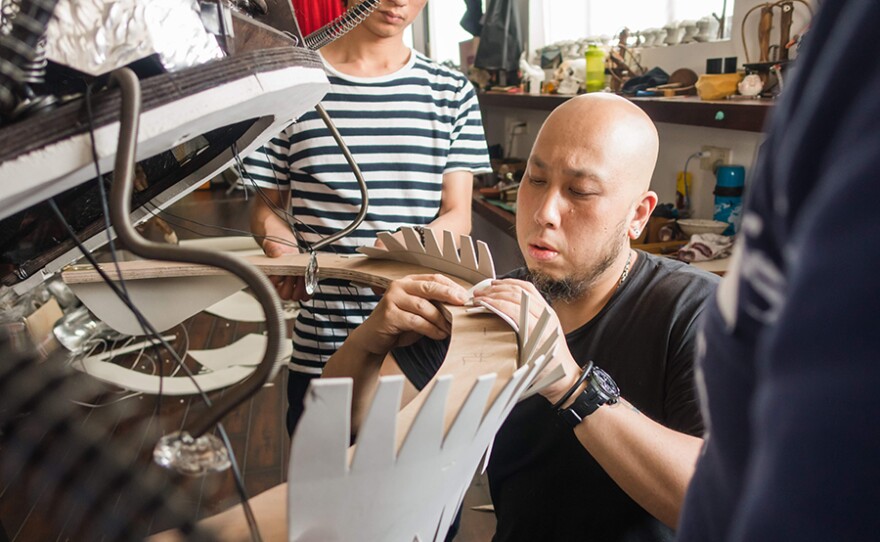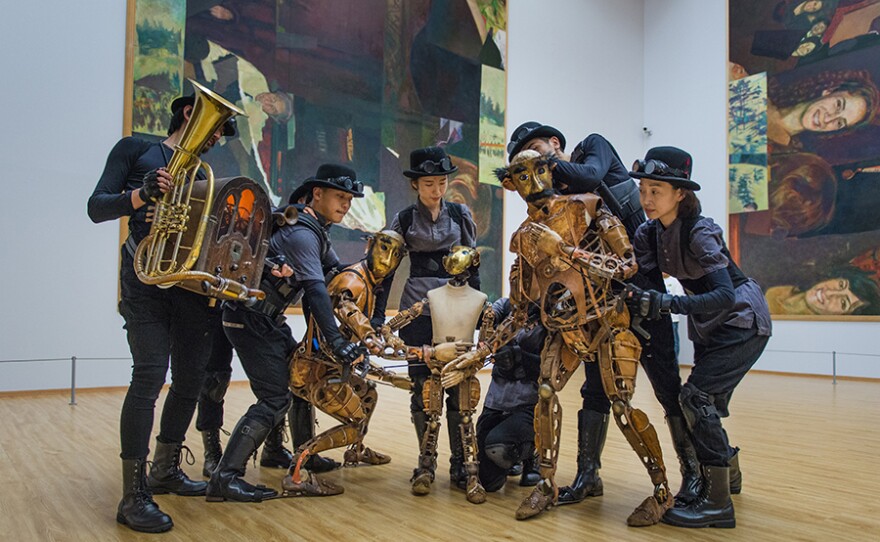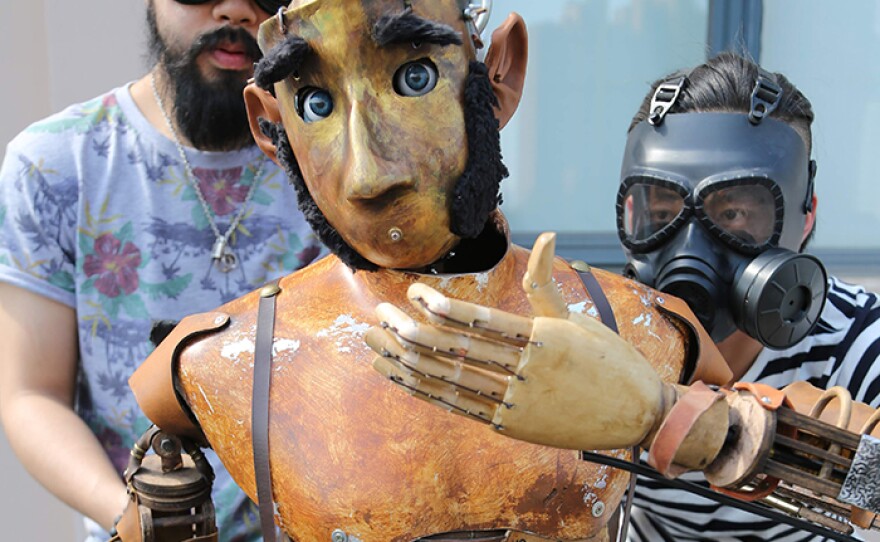—A father and son confront their mortality through their art before time runs out—
43-year-old Maleonn is one of China’s preeminent conceptual artists. His father, Ma Ke, is the former Artistic Director of the Shanghai Chinese Opera Theater. Forbidden from working during the Cultural Revolution, Ma Ke later immersed himself in theater and the mysterious excitement of his father’s creative world inspired the young Maleonn.
When Ma Ke is diagnosed with Alzheimer’s disease, Maleonn embarks on an ambitious new theater project: “Papa’s Time Machine,” a visually stunning time-travel adventure told with human-sized puppets. At the play’s heart are scenes inspired by Maleonn’s memories with his dad.
In “Our Time Machine,” Director-Producers Yang Sun and S. Leo Chiang chronicle Maleonn’s artistic pursuit and his hope that the shared endeavor will bring him closer to his father - personally and artistically.
The filmmakers follow Maleonn’s creative process, as his play generates enthusiasm, domestically and abroad, showing signs of a promising future. But his lifelong dream to know his father through artistic collaboration unravels as Ma Ke’s condition deteriorates. He struggles to contribute to the play, and barely recognizes the piece when it’s completed.
Both men grapple with the limits of their art to fend off the inevitable. In the face of short-term memory loss, Ma Ke finds comfort and order in recounting his glory days as a respected director.
Maleonn navigates his own artistic crisis, confessing to an unborn child, “I’ve always thought the important things in life, even if they are extinguished, can be lit again with my passion. But time is too powerful.”
"This is a memorable and poignant story of the power of art and love to counter the ravages of time. Creativity can help us overcome seemingly insurmountable challenges. POV is so excited to bring the film to US audiences on PBS and through our community network," said Justine Nagan, Executive Producer, POV/Executive Director, American Documentary.

“Our Time Machine” is both a record of Maleonn’s determined race to finish his production and a well-observed family drama, full of tenderness, heartbreak and joy. Sun and Chiang weave together these two narrative strands to create a layered depiction of a middle-class Chinese household.
Told against the backdrop of China’s accelerated social transformation, the film captures the shifting generational dynamics through a father and son who came of age on opposite sides of the Cultural Revolution.
Visually, Sun and Chiang contrast keen-eyed realism with dream-like images of Maleonn’s steampunk aesthetic. The result is a complex view of modern-day China.

Co-director S. Leo Chiang said, "This is an evergreen story, relevant for past and future generations and across cultural divides. Especially on the international stage, documentaries from China often focus on powerful stories from marginalized classes or persecuted political dissenters, but our film offers an intimate look at a middle-class Chinese family facing issues that audiences around the world can immediately relate to. Our story provides a needed addition to highlight the similarities between people in the West and in China during a time where the political language can be hostile and divisive."

Accepting his father’s decline, Maleonn comes to realize that there are no effortless masterpieces and no traveling back in time to retrieve what has been lost. Instead, his effort unexpectedly propels him forward with a new collaborator and significant partner.
“Our Time Machine” is a compassionate tale that celebrates the creative process through which father and son reconcile past feelings. Their mutual devotion to art bridges the gulf between generational memory, experience and societal change.

Film Reviews
"Beautifully realized… visually striking..."– San Francisco Chronicle
"Sun and Chiang convey the cyclical nature of existence with poignancy and grace."– The Guardian
"Tender, soulful and life-affirming, Our Time Machine is a movie for all seasons."– KQED
Film Awards
The film had its world premiere at the 2019 Tribeca Film Festival, where it won the prize for Best Cinematography in a Documentary Feature. It received the Grand Jury Award for International Documentary Feature at the 2019 LA Asian Pacific Film Festival. It has been recognized with these additional awards: CAAMFest 2019, Winner: Documentary Competition; DocEdge 2019, Winner: Best International Director and Winner: Best in Category “All in the Family”; Indie Street Film Festival 2019, Jury Award – Best Documentary Feature Film; Minsk International Film Festival Listapad 2019, Grand Prix for Best Documentary Film; China Academy Awards of Documentary Film, Best Editing; Wakefield Doc Fest, Best of Fest Audience Award; Salem Film Fest, Special Jury Award.
Watch On Your Schedule:
This film will stream online on POV.org in concurrence with its broadcast.
Watch with the PBS Video App, or full episodes of POV are available to stream on demand with the KPBS Video Player for a limited time after broadcast.
Join The Conversation:
POV is on Facebook, and you can follow @povdocs on Twitter.
Credits:
Directors/Producers: Yang Sun & S. Leo Chiang. Editor: Bo Li. Executive Producers: Jean Tsien, Sally Jo Fifer, Nick Fraser. Executive Producers for POV: Justine Nagan and Chris White. Writers: S. Leo Chiang and Bo Li. Co-Director: Shuang Liang. Cinematographers: Yang Sun, Shuang Liang. Original Music: Paul Brill. Presenters: Feiyue Wu Xiaoyu Qin. Co-Producers: Violet Du Feng, Qingzeng Cai, Sharky Wang.






